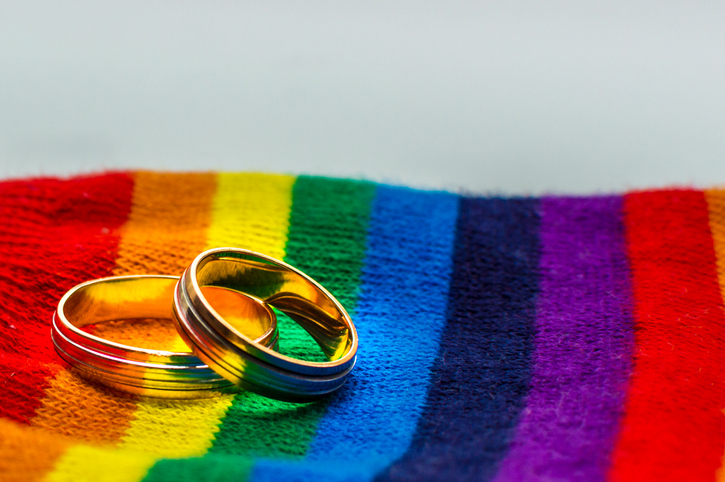
In honor of Gay Pride Month, it is worth taking a look back to see how New Jersey ultimately became the 14th state in the United States to permit same-sex marriages. Many states, like New Jersey, saw their own unique paths—through civil unions, court battles, and finally, marriage equality. These legal triumphs are not just about contracts or benefits; they are about being seen as equal in the eyes of the law, and more importantly, in society.
2004 – Domestic Partnerships: New Jersey became one of the first states to implement a domestic partnership law, granting limited rights to same-sex couples. Domestic partners are able to file jointly for New Jersey state income taxes and have limited estate and inheritance benefits at the state level. The partnership also extended some limited health care benefits such as being legally recognized for visitation and medical decision-making purposes.
Clearly, the benefits provided in domestic partnerships fall far short of those provided in marriages. Today, Domestic Partnerships still remain available to same-sex and opposite sex couples where both partners are age 62 and older.
2007 – Civil Unions Enacted: The New Jersey Legislature passed a civil union law, providing same-sex couples with many of the rights and benefits of marriage. However, like domestic partnerships, civil unions would only be recognized at the state level. Therefore, members of a civil union cannot file joint Federal Tax returns or apply for Social Security survival benefits. Also, civil unions do not provide the same protections against Federal immigration laws. Lastly, other states do not have to recognize civil unions that are recognized in New Jersey. Therefore, a couple could move to a state that does not recognize the civil union and they would no longer enjoy the benefits they experienced in New Jersey.
Today, civil unions still remain available and it is important to note that they did not automatically convert to marriages when same-sex marriage was finally allowed in New Jersey in 2013.
2013 – Garden State Equality v. Dow: In this decision, a New Jersey Superior Court ruled that the state's civil union law violated the state constitution because it denied same-sex couples equal protection in light of the federal government’s recognition of same-sex marriage in the U.S. Supreme Court’s decision in United States v. Windsor (2013).
October 21, 2013: Same-sex couples began marrying in New Jersey, making it the 14th state to legalize same-sex marriage .
January 2022: Governor Phil Murphy signed legislation codifying same-sex marriage into New Jersey law, ensuring its permanence regardless of future federal rulings.
New Jersey's path to marriage equality was marked by legal challenges and legislative actions that reflected a broader national shift toward recognizing the rights of same-sex couples. If you have questions about your legal rights, family law or same-sex marriage issues in New Jersey, our team is here to help. Contact Cohn Lifland today to schedule a confidential consultation.
